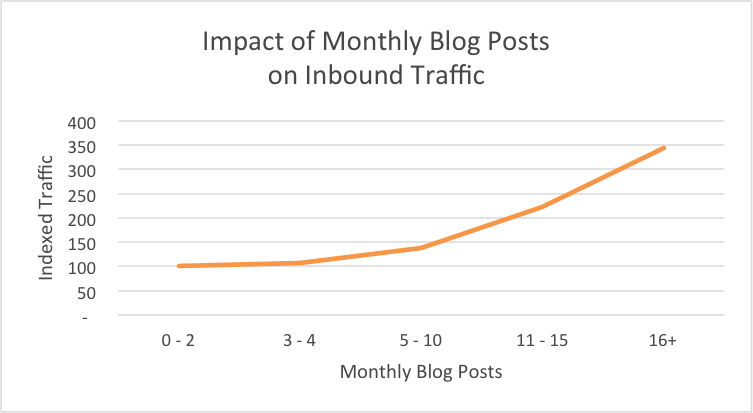Do You Really Need To Blog To Get Rank #1 On Search Engines?

Image Credit: Pixabay
Many business owners quiver at the idea of blogging. “Do we really need to have a blog?” is the most obvious question. The answer is “YES”. It is the most efficient way to boost your SEO rankings. In this article, I aim to explain to you in detail the importance of blogging for SEO and how it makes your site favorable for Google to rank and increase your organic traffic.
You may have a million reasons to blog, some of them include building trust among the followers, positioning yourself as an experienced expert, and sharing news or know-how with your company’s followers.
Six Reasons Blogging is important for SEO
1. Provides fresh content:
Google tends to favor websites with a lot of ‘high-quality content’. You don’t change the pages on your websites often, hence writing a blog comes in the picture. Google loves fresh content whether you update your blog every day or every week. The highlighting point is the quality of the content which is the most important factor. Quantity of articles with low quality will not help or contribute to rankings. Focus on creating high-quality articles regularly and ensure you are optimizing each article for different keywords. Avoid writing articles with the same keyword as it competes with each other and limits your keyword ranking opportunities. Google doesn’t deliver outdated information to the searchers but regularly updated and fresh content sends signals to them that the site is working. It also gives search engine algorithms reasons to index your website more often. A Hubspot study reveals more often a company writes articles, more organic search traffic it receives.

Image Credit: eWebscapes
2. Helps to implement long-tail keywords:
Keywords don’t hold the same weightage that they once did. Many people start SEO wanting to aim for the most relevant keywords for their business. For example, if you are selling ‘camping gadgets’ and show up on page one for the search ‘camping gadgets’.Unless you are the biggest brand for camping gadgets, you will find it difficult landing a top spot for the search. SEO is competitive and the best bet for the brands is to look for longer, specific keywords related to the business and try to rank those. These are called long-tail keywords. Blog posts on the website are an excellent way to use long-tail keywords.
For instance, a local store might be trying to rank the keyword ‘camping gadgets’ but also aiming to rank long-tail keyword ‘Gadgets for car camping’. This gives them a chance to write a blog post on ‘ Types of gadgets needed for car camping’ and link it to their product using the long-tail keywords. Long-tail keywords are extremely important for SEO strategy and studies suggest that 50 per cent of the searches are four words or longer. From the above example, we understand creating blog articles allows the site to rank many keywords. The traffic opportunity is more from these topics than on page three or four for using more popular terms.
3. Google is a ‘Topical Match Engine’
Google is no longer looking for a large number of pages but for sites who are a book of knowledge on their topics. They have changed their algorithms and now understand the context of the whole topic, being a topical match engine versus a simple keyword match engine. This shows that having a single page or article with a single keyword around the topic is not sufficient for your site. You need to represent the topic more comprehensively to appear in Google search results.
Blogging provides an outstanding opportunity to demonstrate your thoughts and in-depth knowledge about a topic to your readers. Writing multiple articles covering different aspects of a subject and giving detailed insights about that topic shows Google that your site is worthy to come up in the search results for that topic. This gives a boost to the rankings of competitive content on your site.
4. Opportunities for backlinks:
A link for a link. A prominent way to get those links and increase the authority of your domain is by blogging. Look out for relevant blogs to link to your blog posts and they may provide a link to your website on theirs. These links have a direct effect on your rankings and help generate traffic to your website as well as other company’s site.
However, it is important to note that the process of gaining inbound links should be done naturally. If the website linked to your blogs or site has no relevance with your industry then it will violate Google’s terms of services and can lead to a high penalty situation.
Therefore, produce high-quality content often to earn inbound links organically and build a strong following on social media to share articles each time. Blogging increase chances to earn inbound links from other websites that is highly impactful for SEO.
Research shows that companies who blog get 97 per cent more links to their websites.
5. Increases interlinks:
SEO is so much about links and internal links and easiest to get as you create them for yourself. So, including internal link points users from one page of the site to another. As you add more pages to various but related topics, you can naturally link them to each other.
Every time you use anchor text to tell Google what page you are linking while building up its connection to your target keyword in how the algorithm sees it.
6. Shareable Posts:
When your target audience likes the blog post, they share it on social media. The more social media shares it gets, the more people will click, like and reshare, and explore other pages on your website. When you get a lot of traffic and get repeat visitors that tell Google – people like your website and raise your rankings and authority level in their algorithm.
Wrapping up
Blogging and SEO go hand-in-hand. Blogging consistently helps increase counts of keywords and pages, inbound links, and create comprehensive articles. Target audience loves to hear from you and Google loves your updated and relevant website. Search engines look for blogs that explain the premise of the subject that interest bloggers and you can take advantage of it to up your rankings. So get cranking on the blog posts


